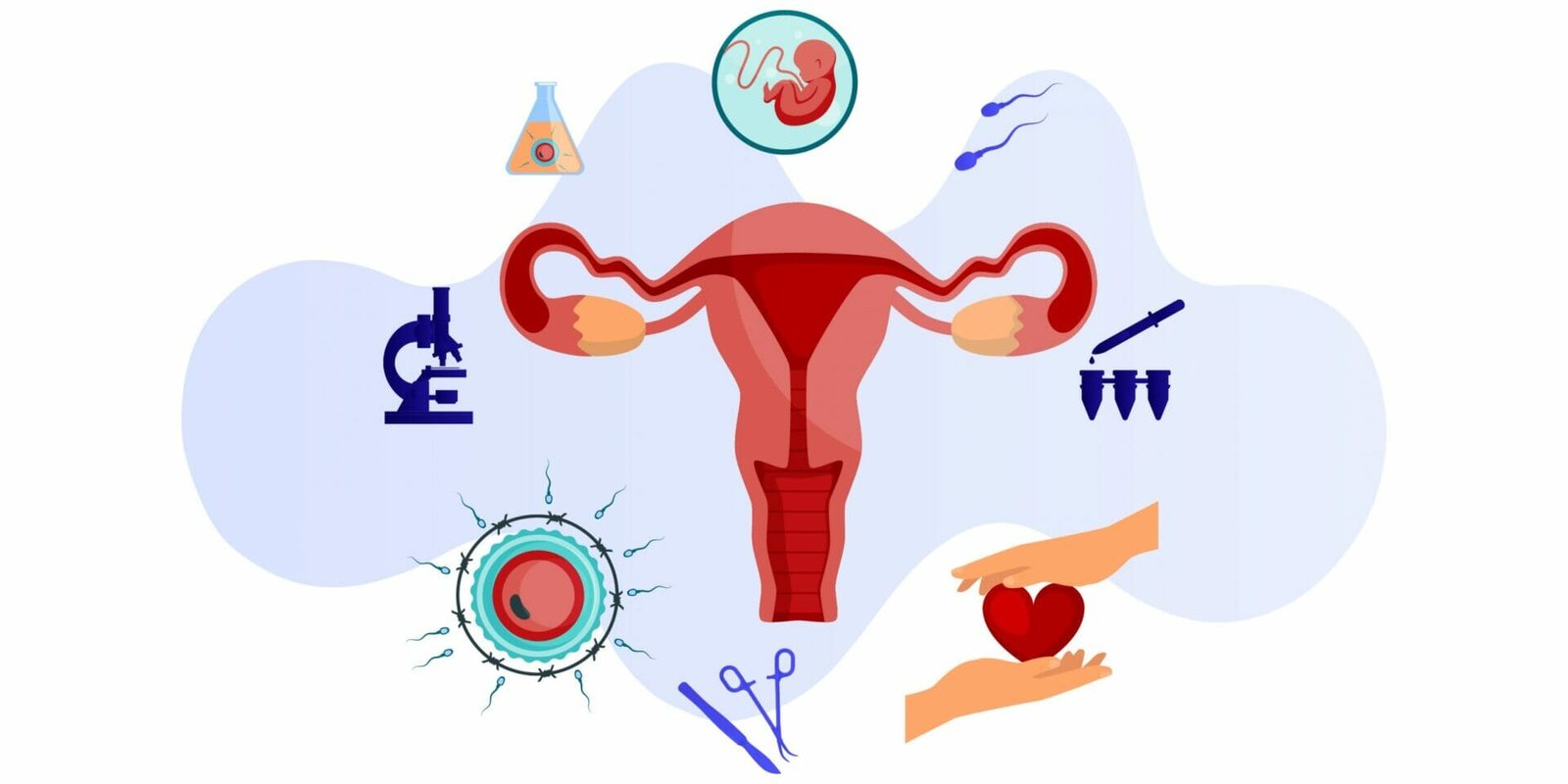Understanding Infertility: Causes and Treatment Options for Couples
Infertility is a common concern affecting 8% to 12% of couples worldwide. It refers to the inability to conceive a child naturally despite regular sexual intercourse without contraception for a specified period. For couples under 35, medical infertility is considered after one year of trying, while for those over 35, it’s after six months. Let’s explore the causes of infertility and when it’s appropriate for young couples to seek medical assistance.
Young Couples Should Not Panic Hastily
In general, it’s essential for young couples to approach the topic of infertility with patience and understanding. If you and your partner are around 25 years old, experts recommend waiting for a few years before considering infertility treatments. However, if you’re in your 30s and facing difficulties conceiving, it’s advisable to evaluate your situation and consider seeking professional guidance and potential infertility testing to identify any underlying issues.
Infertility can arise due to various factors affecting both male and female partners. Common causes include hormonal imbalances, ovulation disorders, blocked fallopian tubes, low sperm count or poor sperm quality, and age-related factors. By undergoing comprehensive fertility tests, couples can identify the specific cause and explore appropriate treatment options.
What Are the Factors That Affect Women’s Infertility?
There may be many reasons why women experience infertility.
Ovulatory Disorders: An ovulatory disorder disrupts the normal release of eggs from the ovaries, hindering conception. Irregular or absent menstrual cycles often accompany this condition, making it difficult for women to predict the fertile window for conception.
Hormonal Disorders, like Polycystic Ovary Syndrome (PCOS): PCOS is a common hormonal disorder affecting women of reproductive age. It leads to imbalances in sex hormones, causing irregular periods, excess androgen production, and multiple cysts in the ovaries. PCOS can significantly decrease a woman’s chances of getting pregnant.
Impact of Excessive Exercise: Engaging in excessive physical activity can disrupt hormonal balance, affecting the menstrual cycle and ovulation. Overtraining may lead to decreased fertility and, in some cases, amenorrhea (absence of menstrual periods).
Hyperprolactinemia: Hyperprolactinemia is a hormonal disorder characterized by elevated prolactin levels, which can interfere with ovulation and menstrual regularity. Excessive breast milk production, known as galactorrhea, is also associated with this condition.
Thyroid Disorders: Hyperthyroidism and Hypothyroidism
Thyroid imbalances can disrupt the menstrual cycle and interfere with ovulation, leading to fertility problems. An overactive thyroid (hyperthyroidism) or an underactive thyroid (hypothyroidism) can affect a woman’s reproductive health.Impact of Eating Disorders: Eating disorders such as obesity, anorexia, bulimia, pica, and night eating can contribute to hormonal imbalances and irregular menstrual cycles, adversely affecting fertility.
Abnormalities with the Cervix or Uterus: Structural abnormalities in the cervix or uterus, such as polyps, fibroids, or congenital malformations, can hinder implantation or lead to recurrent miscarriages.
Lifestyle Factors: Smoking and Excessive Alcohol Consumption
Heavy smoking and excessive alcohol consumption can negatively impact fertility by reducing egg quality and disrupting hormone levels.Previous Cancer or Cancer Treatment: Cancer and certain cancer treatments, such as chemotherapy and radiation therapy, can harm the reproductive organs and lead to infertility in women.
Genetic Conditions: Turner Syndrome and Fragile X Syndrome
Genetic disorders like Turner syndrome and Fragile X syndrome can lead to female infertility due to anomalies in the reproductive system.Pelvic Adhesions and Infections: Abdominal or pelvic surgeries, as well as pelvic infections, can cause scarring (adhesions) and damage to the reproductive organs, affecting a woman’s fertility.
Trustworthy Treatments in Turkey at Affordable Prices
Our packages include all Medical fees, Accommodation, Airport transfers, and more.
What Are the Factors That Affect Men’s Infertility?
Men may encounter various factors contributing to infertility. These include:
- Sexually Transmitted Infections: Diseases like chlamydia, gonorrhea, and mumps can affect male fertility.
- HIV: Human Immunodeficiency Virus (HIV) can have detrimental effects on male reproductive health.
- Environmental Exposures: Exposure to radiation, pesticides, and chemicals may adversely affect sperm production.
- Testicular Issues: Abnormal sperm production or function due to genetic disorders, diabetes, or testicular problems can lead to infertility.
- Varicocele: Enlarged blood vessels in the testicles can impact sperm quality.
- Genetic Diseases: Conditions like cystic fibrosis and premature ejaculation may lead to fertility challenges.
- Structural Abnormalities: Blockages or damage to the reproductive organs can hinder sperm mobility.
- Substance Abuse: Heavy smoking, alcohol consumption, and exposure to high heat can influence sperm production.
- Medical History: Previous cancer, cancer treatments, chemotherapy, and certain medications may disrupt sperm production.
Available Infertility Treatments
Infertility treatments have advanced significantly in recent years, offering hope to couples struggling to conceive. Depending on the identified cause, treatments such as ovulation-inducing medications, intrauterine insemination (IUI), and in vitro fertilization (IVF) can significantly increase the chances of pregnancy. Consulting a fertility specialist can help couples make informed decisions about the most suitable treatment for their unique situation.
Infertility can be a distressing experience for couples, but understanding the underlying factors can help in seeking appropriate medical treatments. Both men and women can face various challenges in conception, necessitating a thorough evaluation by healthcare professionals. Seeking timely medical advice, adopting a healthy lifestyle, and exploring available fertility treatments can provide hope for couples trying to conceive.








